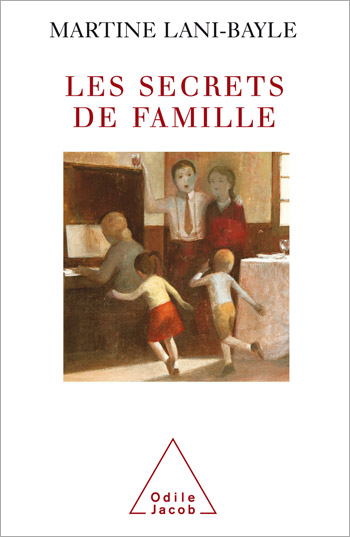Catalog All books

Bernard Chouvier
The Fanatics
For more than twenty years, Bernard Chouvier has studied various forms of political and religious commitment and activism and their sectarian excesses.
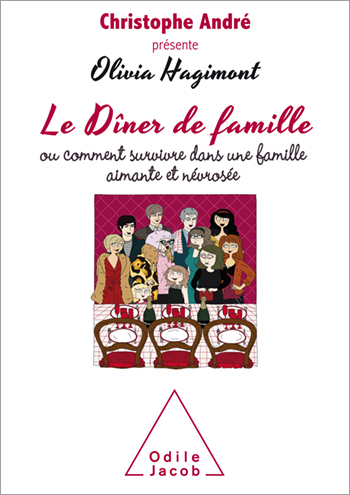
Olivia Hagimont
The Family Dinner or How to Survive Your Loving, Neurotic Family
Family dinners are the perfect opportunity to show a rogue’s gallery of characters with strong personalities, who will, over the course of a meal, offend and wound each other, but come to love each other once again. Family get-togethers, where neuroses take centre stage. Olivia Hagimont’s sense of humour works as a magnifying glass, allowing us to see our own idiosyncrasies in order to be able to put things that hurt us into better perspective, and to start letting go of past events.

Michel Delage, Boris Cyrulnik
Family and Resilience
This book delves further into the notion of resilience, examining it in the light of the family group.

John Cleese, Robin Skynner
Families and How to Survive Them
How do we choose our partners? Why do we fall in love? What is the role played by each partner within a couple? How do we behave with our children? How can our children grow up to become well-balanced adults? ....And what is it that makes sex so important? These are some of the simple, basic questions that the renowned family psychotherapist Robin Skynner and his former patient, the comedian John Cleese, have chosen to discuss in a series of lively conversations that address serious issues in a practical, humorous manner. Robin Skynner is a psychotherapist. John Cleese is an actor and comedian.

Bernard Lewis
Faith and Power Religion and Politics in the Middle East
One of the greatest experts on the Middle East revisits the great question of Islam and its clash with the West

Annales de démographie historique
The Factory, the Men and the Town. Intergration in Industrial Centres
Annales of Demographic History Report
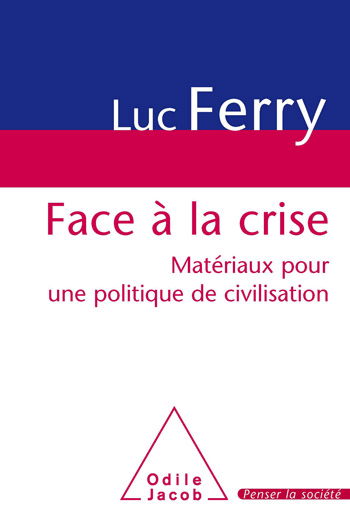
Luc Ferry
Facing the Crisis Building Blocks for a Politics of Civilisation
To overcome the crisis we will have to do more than salvage what we can by further expenditures, no matter how necessary or urgent these may seem.

Nicolas Mariot, Claire Zalc
Faced with persecution The Destruction of the Jews of Lens, 1940-1945
The history of the Holocaust in France, seen from an entirely new angle. This book does not simply describe the numerous possible attitudes: it aims to explain them.

Mani Saignavongs, Benjamin Baret
Extraordinary Stories (about Brains)
A dozen short stories, which can be read individually, depending on the reader’s inclination, each one illuminating an episode in the life of our brain: how it remembers, how it is afraid, how it sees, how it recognizes, how it speaks…

Pierre Bordage, Jean-Paul Demoule, Roland Lehoucq , Jean-Sébastien Steyer
Exquisite Planet
Adapting the form of an ‘Exquisite Corpse’ (a Surrealist technique in which collaborators draw in turn on a sheet of paper, fold it so that only a fragment remains visible, then pass it on to the next collaborator who improvises a new drawing), the four authors of this book have each described a possible planet and imagined the life forms that could have developed there, according to the laws of evolution.

Iannis Roder
Explaining the Shoah and Genocide to Our Children
This book desacralizes the Shoah and shows that though that genocide had specific characteristics, it can be compared to others.
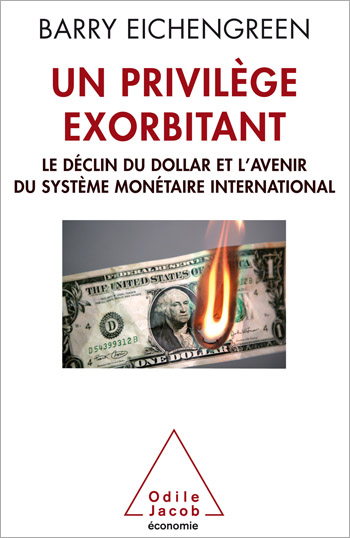
Barry Eichengreen
Exorbitant Privilege The Rise and Fall of the Dollar and the Future of the International Monetary System
As the dollar keeps falling, and in the run-up to the G20 summit, what are the options to reform the international monetary system? Barry Eichengreen urges the creation of a multipolar system
![Exoplanets and Life in the Universe - In Search of Our Origins]](https://s2.odilejacob.fr/couvertures/9782738154712.jpg)
Stéphane Mazevet
Exoplanets and Life in the Universe In Search of Our Origins]
The tale of the great advances of the last half-century up to the discovery of extrasolar planets.

André Brahic, Bradford Smith
Exoplanets Looking for life in the Universe
A brilliant, enthusiastic and accessible work by two of the greatest living astronomers

Pierre Roubertoux
Existe-t-il des gènes du comportement ?
Recent advances in genetic research have had widespread and far-reaching influences in fields as varied as animal and plant biology and medicine. They have also upset some ethical rules. Genetics today is in a triumphant, seductive phase, but its limits are yet to be defined. In this book, the eminent French geneticist Pierre Roubertoux argues that genetics has strayed too far from its justifiable areas of application. Soon, genetics may even be applied to the mind and to consciousness, just as it is already being applied to behaviour by scientists who contend that each type of conduct has its corresponding gene (this is tantamount to saying a specific gene is responsible for each virtue and each vice). Scientists who defend this theory say that they have discovered genes linked to various degrees of activity in mice and flies. Thus, intemperance and gluttony would be linked to a genetic partiality to alcohol, sugar or fats. Pride could be explained by a gene for dominance which has allegedly been found in mice. Greed, too, could be explained by a gene. The supposed existence of an infidelity gene was much in the news three years ago. This is a sound scientific synthesis which will enable readers to grasp the contribution of genetics to our comprehension of who and what we are. It should also help them resist the temptation of reducing everything to genetics. Pierre Roubertoux is a professor at the University of Aix-Marseille and a research fellow at the Institute of Physiological and Cognitive Neuroscience at the Centre National de la Recherche Scientifique (CNRS).
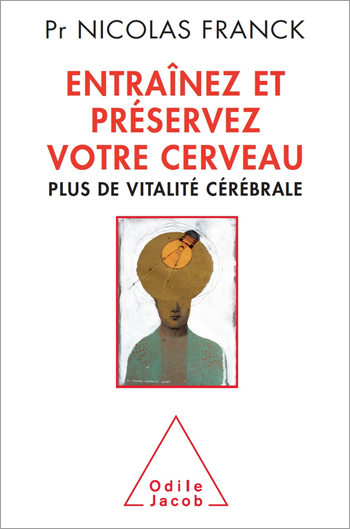
Nicolas Franck
Exercises to Maintain Your Brainpower
Practical exercises to maintain and enhance your mental capacities



